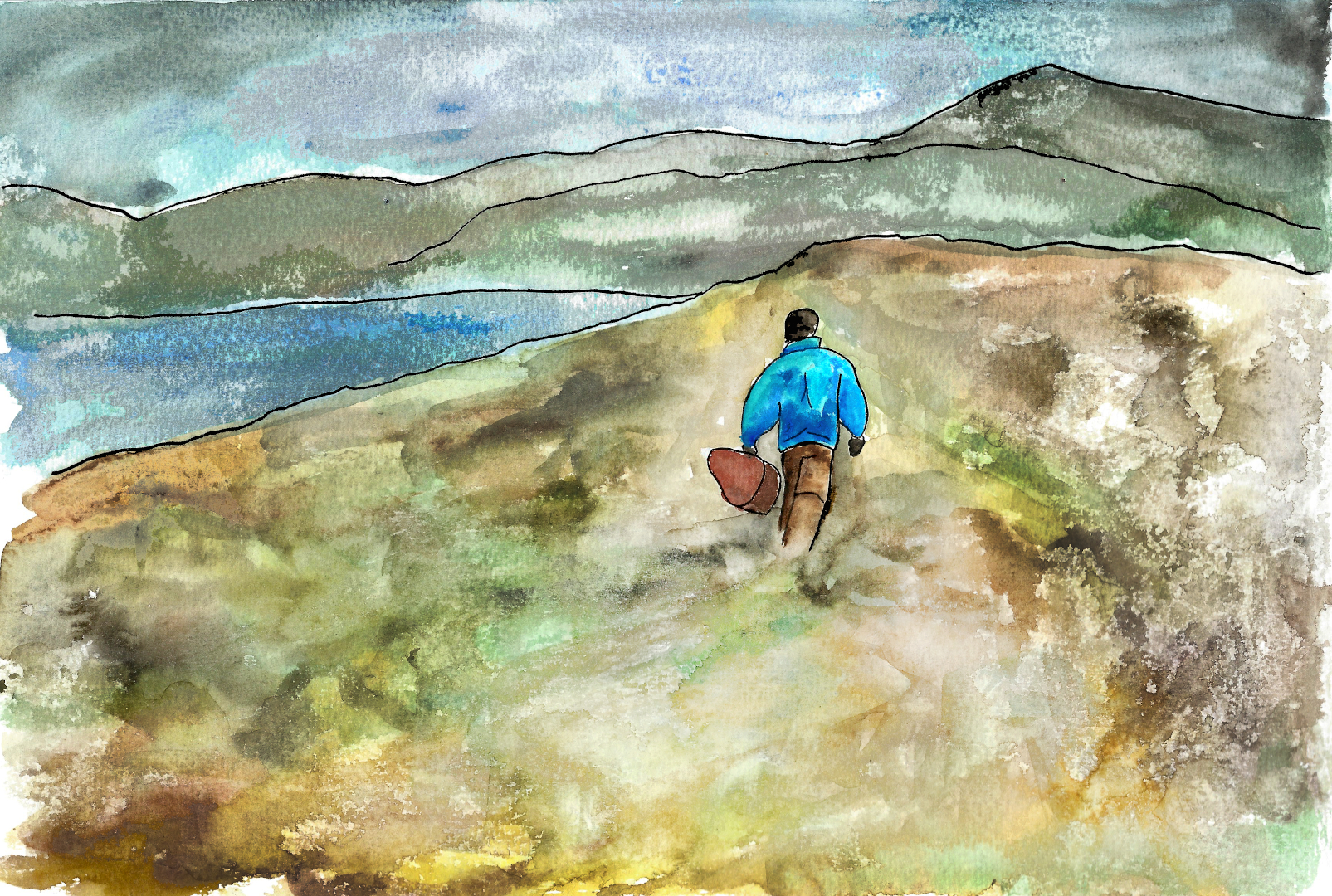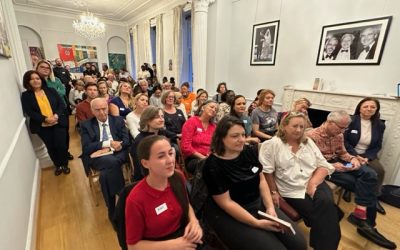‘Are you changing your sheets? Every week, Omar?’
Omar, a young Syrian musician who has fled war at home and is seeking asylum in the UK, still finds himself being chastised by his mother, across the distance of thousands of miles, about bedsheets. Household chores aren’t what immediately come to mind when you think about refugees, but it’s in these unremarkable words that you feel the immense weight of grief, displacement, and estrangement that laces Ben Sharrock’s film, Limbo, which follows four refugees waiting for their asylum claims on a remote and strangely mystical island.
Because the question that Omar, played with stirring, quiet eloquence by Amir El-Masry, struggles with throughout Limbo is how to recapture the comfort, the self-belief and love that home encapsulates. How to feel again that his mother telling him to change his sheets is just the ordinary kind of parental nagging he can forget about instantly? To not feel, in those repeated reminders, tragic yearning for a previous life and an overwhelming sense of loss?
These are impossible questions whose impossibility the film tacitly acknowledges, its visual language enunciating the inescapable atmosphere of deprivation and loss. Set on an unnamed Hebridean island, the weather is no mere background, but inflicts an unrelenting grimness that’s visceral and exhausting to watch, let alone walk through. Static shots of empty, imposing landscapes relay an experience more like a slideshow of photographs than a film at times, where the camera lingers for longer than what’s comfortable on the unyielding blankness of grass, rock, moss and water. Sharrock creates this effect of time standing still for us, emulating a sense of the literal and mental limbo that Omar and his companions are stuck in, waiting for the return of their asylum applications, their lives suspended in an uncertainty manufactured to degrade a person’s mind and body – the irony of so much space and nowhere to go.
Such bleakness is, crucially, counterbalanced by Sharrock’s sense of humour and whimsicality, producing comedy that is both absurd and self-consciously sentimental. Moments of surreal cross-cultural contact – a woman in a dolphin costume relating the history of horrible Wee Willie to Omar, his brief lesson on English racist epithets from the sensitive Asian shopkeeper – are delivered through deadpan faces, asking us to reorient ourselves into Omar’s bemusement, to perceive how encounters of difference can be funny – that they exist on this fragile edge between pleasure and pain.
Like a scene showing the brothers, Abedi (Kwabena Ansah) and Wasef (Ola Orebiyi) arguing over Friends, which they’ve retrieved from the never-seen donation centre, a place that splutters out dated sitcom DVDs and random, useless toys but never a thick winter coat:
‘You are a liar!’ ‘Mumu1, you an idiot.’ ‘You no got respect, huh?’
The brothers are always at each other’s throats: the rage that’s stifled by the impotence their refugee status subjects them to is unleashed when they’re together, further entangled in the emotional consequences of the complicated journey they’ve made from West Africa. In this scene, though, the tension breaks as it’s revealed the brothers are only arguing about the Ross and Rachel were-they-on-a-break question that’s become a metonym for the hit 90’s US sitcom. It’s a debate that’s been meme-ified to the extent that it’s not particularly funny in its own right anymore, which is why it works here, in a film where the jokes don’t bring us to bellyaches, but create an absurd comedy by displacing familiar situations and motifs into the particular and individual lives of the refugees isolated on this lonely island.
Omar’s situation at the end of the film remains in limbo, with no real change to the legality of his presence in the UK. Even Farhad (Vikash Bhai), the unflappable, loveable Zoroastrian Afghan who is finally granted asylum at the end of the film, faces a future of vulnerability and instability when he leaves the island. Farhad’s imminent departure reminds us that in some ways, the desolate sparseness of the island offers relative shelter from the wider interpersonal relationships, conflicts and struggles of refugees in mainstream society. The effect of realism and authenticity we receive comes almost entirely from our emotional closeness to and sympathy with the characters, through their silence as much as their words. We don’t need to have the geopolitical climate surrounding refugees spelled out to us to be deeply moved by Omar, Farhad, Abedi and Wasef, portrayed by Sharrock’s cast with poignant sensitivity throughout. Rather, watching Limbo is an exercise in tenderness and compassion: this is a stunning evocation of the basic human need to know oneself, to feel at home and be loved in an ugly world.







